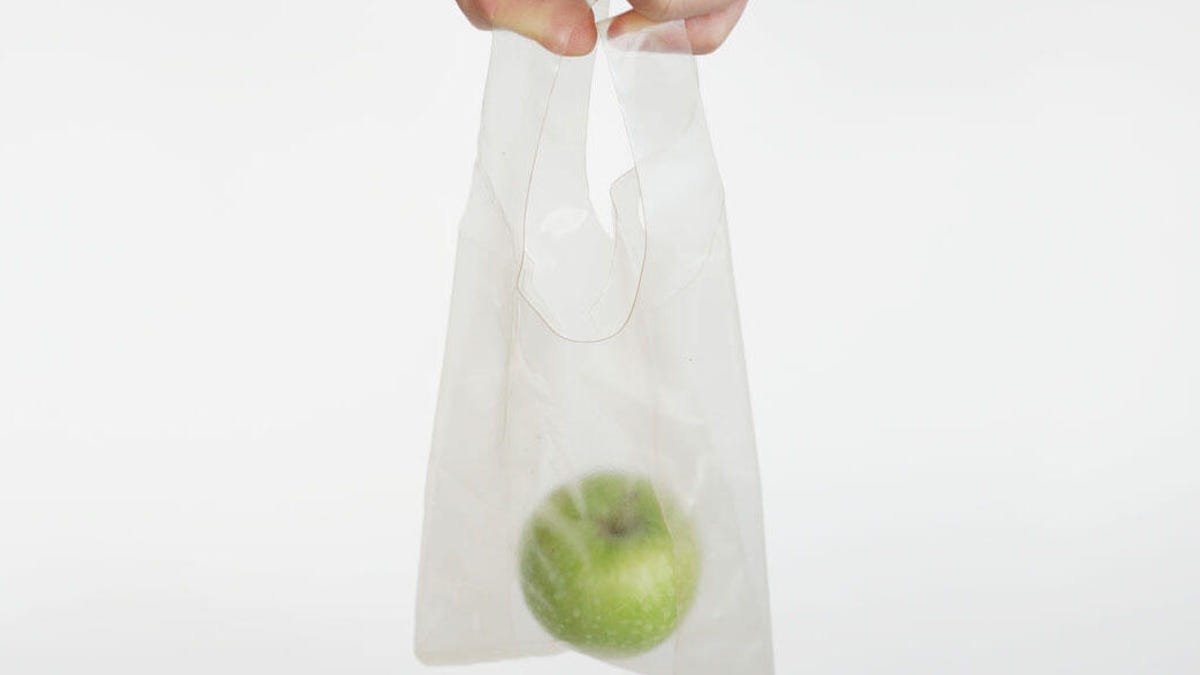A plastic made from fish skin just won the James Dyson Award
Student Lucy Hughes made the biodegradable plastic using fish waste and red algae in a bid to end single-use plastic waste.

MarinaTex is made out of fish waste and algae which combines to create a clear plastic-like material that is also biodegradable.
Single-use plastics are choking our oceans and killing marine life, but one young designer from the UK may have found a solution, creating a plastic out of algae and fish waste that's just taken out the James Dyson Award.
The material, known as MarinaTex, is a clear, flexible bioplastic that is produced in sheets and designed to replace single-use plastics like plastic bags and food packaging. While it looks like conventional plastic, it's actually made out of agar -- a naturally occurring substance found in red algae -- and fish skin and scales left over as a byproduct from the commercial fishing industry.
The fish skin contains strong but flexible proteins, while the agar works as a binding agent to gel the material together -- both organic materials combine to create a bioplastic that is completely biodegradable.
It's not the first biodegradable packaging made from organic materials. At this year's London Marathon, UK company Skipping Rocks Labs served energy drinks to runners in edible drinks bubbles made from seaweed.
Read more: Go greener with these cool eco-friendly products in 2019
MarinaTex is the brainchild of 24-year-old University of Sussex student Lucy Hughes, who created the material as part of her final year product design course, before picking up the $35,000 top prize in the James Dyson Award.
While Hughes refined the formula for MarinaTex on the stove in her student apartment, she hopes to scale up the invention into a commercially viable product.
"Plastic is an amazing material, and as a result, we have become too reliant on it as designers and engineers," she said of her creation. "It makes no sense to me that we're using plastic, an incredibly durable material, for products that have a life-cycle of less than a day."

